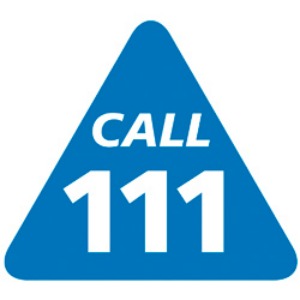The BMA has called for the Government to launch an ‘urgent analysis’ of the impact of NHS 111 on the wider health service, although figures released by the BMA apparently showing a spike in referrals to GPs have been disputed.
It released figures yesterday suggesting there had been a 186% year-on-year increase in referrals to GPs from the telephone triage system, but it later retracted this claim, after the head of communications at NHS England said they had been based on a ‘misreading’ of the data.
But GPC leaders said they are still hearing more examples of patients being referred from NHS 111 with minor ailments, such as colds and sore thumbs, and they said there are ‘serious doubts’ as to whether the ‘huge increase’ in workload is clinically necessary.
The BMA has also said there should be a review of the directions given to patients on self care advice, and the use of medically trained staff in call centres.
The triage service has faced a number of criticisms since its launch in 2013, and the GPC had said it would be unable to cope with demand. The system collapsed soon after launching, with its biggest provider – NHS Direct – eventually having to relinquish its contracts.
It has been singled out for heaping pressure onto GP and A&E services throughout the winter, and Pulse revealed how outages from unexpected demand led to GPs having to step in to offer support over the New Year.
The BMA’s original figures claimed that there were 8,138,863 referrals to GPs from January-October 2014, compared with 2,844,452 in the same period in 2013 – an increase of 186%.
However, it later admitted that this was based on a misreading of the data, and that 5,294,411 calls were passed to GP services between October 2013 and October 2014, compared with 2,844,452 between August 2010 – when pilots started – and October 2013, representing an increase of 86%.
Related stories
3% of callers received NHS 111 error messages due to high demand
Care UK apologises to GPs after losing NHS 111 reports
Rise in A&E attendances caused by NHS 111, emergency medicine leader claims
However, as well as comparing two different time periods, this failed to take into account that NHS 111 was only introduced beyond pilot stage in April 2013 and after its immediate collapse, it was up and running in only a few regions in England, only becoming fully national later in the year.
Roger Davidson, NHS England’s head of media, tweeted: ‘Genuinely a shame about the BMA’s 111 story: v demoralising for people to be publicly criticised on basis of a complete misreading of data.’
A spokesperson for NHS England said: ‘What the statistics clearly show is that there is a massive demand from the public for the 111 service. To date it has coped impressively with this pressure, with the proportion of referrals to GPs and emergency services remaining steady despite the surge in demand. Given this popularity, however, we are continuing to look at ways to make the service even more robust including asking GPs to help support call centres and provide patients with the ability to get high quality medical advice as quickly as possible.’
But another analysis by the Primary Care Foundation – also released today – estimates that there has also been a sharp drop in the percentage of patients given self-care advice, rather than directed to primary care or other interventions, under NHS 111 when compared with its predecessor.
The PCF estimates that 45% of patients were given self- care advice in 2012 under NHS Direct but figures show that in 2013 and 2014 this has dropped to just 15%.
GPC lead on NHS 111 Dr Charlotte Jones said: ‘Anecdotally, GPs have reported to the BMA that patients have been referred to them with colds, sore thumbs or other conditions that could have been treated safely by sensible advice over the phone, advising a patient on how to self-care, such as picking up medication from a local pharmacist. The number of calls logged as “self-care” seems to have dramatically fallen since the introduction of NHS 111.’
She added: ‘There is little doubt that the NHS cannot afford to have unnecessary workload being created given the unprecedented pressure on our health service. GP practices are already struggling to deliver enough appointments to their patients as demand rises, resources fall and staff shortages continue to undermine GP services.’
BMA chair Dr Mark Porter said: ‘We need the government to do a serious and urgent analysis of the effect of NHS 111 on the wider urgent and unscheduled care system to determine where it may be working inefficiently and to ensure that it is cost effective.’
‘This should lead to recommendations on increasing the level of self-care and ensuring that we have a programme to increase the number of expertly trained clinicians answering calls from patients.’
Health secretary Jeremy Hunt has previously suggested that 111 call handlers be given greater powers to use their own ‘judgement’ in calls, which the GPC described as an idea from ‘cloud cuckoo land’.
This article was updated at 9:45 on 4 February 2015.

















